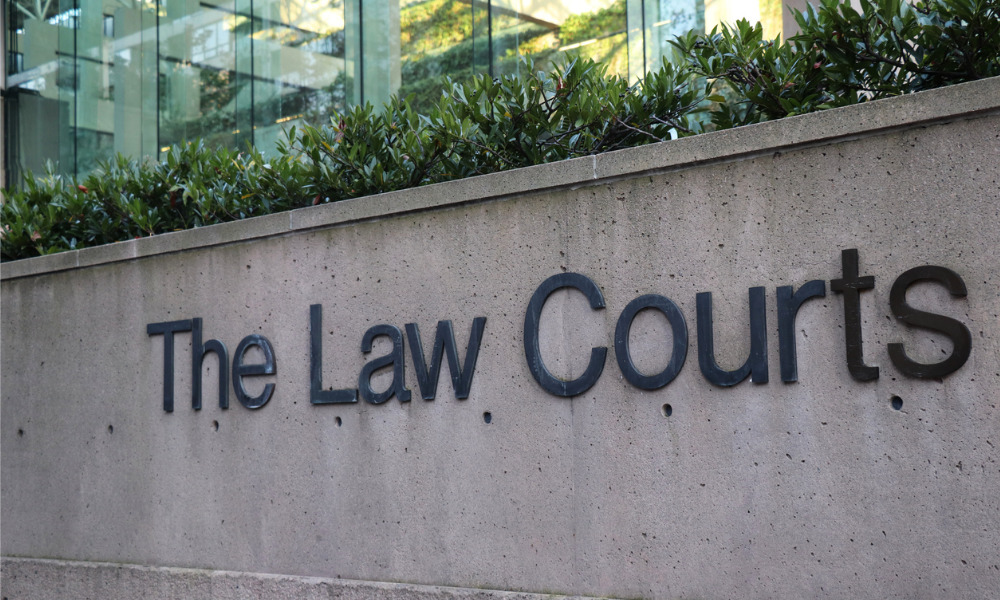Investigation not constrained in scope by the alleged misconduct which triggered it, court said

The Court of Appeal for British Columbia has ruled that pursuant to Law Society Rules, the Law Society of British Columbia is authorized to investigate the “entire legal practice” of a lawyer engaged in alleged misconduct.
In A Lawyer v. The Law Society of British Columbia, 2021 BCCA 437, the appellant, an unidentified lawyer, owns a law firm and primarily practices as a securities solicitor. The LSBC conducted a routine compliance audit of his legal practice. The audit raised concerns, including the mishandling of trust funds and involvement in market manipulations.
Based on the misconduct allegation, The LSBC’s discipline committee ordered an investigation pursuant to rule 4-55. Under rule 4-55, if a lawyer is believed to have committed misconduct, the discipline committee chair may order the investigation of all his or her electronic and physical books, records and accounts. The appellant then filed requests to exclude any irrelevant files from the investigation. But the LSBC denied his requests. Consequently, the investigation was stayed and the LSBC proceeded with another investigation under rule 3-5.
The appellant challenged the scope of the investigation and the related search of his law firm’s files with the B.C. Supreme Court, arguing the following:
- The interpretation of s. 36 of the Legal Profession Act suggested that the investigation was constrained in scope by the alleged misconduct which triggered it;
- Section 36 and rule 4-55 unjustifiably infringed s. 8 of the Charter;
- The LSBC’s decisions − granting the rule 4-55 order and denying the appellant’s exclusion requests − were subject to review under the Judicial Review Procedure Act;
- The parallel investigations under rules 4‑55 and 3-5 were an abuse of process;
- The discipline committee impermissibly sub-delegated investigative authority to its investigators.
Justice Andrew Majawa ruled in favour of the LSBC. On appeal, the appellant raised the same arguments.
In its decision, the B.C. Court of Appeal upheld Justice Majawa’s findings and dismissed the appeal.
The court disagreed with the appellant’s restrictive interpretation of s. 36. Such interpretation was “inconsistent with the plain words of s. 36, their statutory context and the overarching purpose of the Legal Profession Act scheme [and] if accepted. . . would frustrate the [LSBC’s] ability to regulate the profession and protect the public effectively,” the court said.
Instead, the court agreed with Justice Majawa’s finding that on a plain reading of s. 36(b), the legislature authorized the LSBC to conduct investigations which extend to a lawyer’s “entire legal practice.”
The court found that both s. 36 and rule 4-55 did not unjustifiably infringe his right against unreasonable search and seizure under s. 8 of the Charter. The court noted that as a member of a regulated profession, the appellant had a lesser expectation of privacy in the records which were, on their face, part of the regulated business. The court also determined that the search of his law firm’s files was reasonable for the following reasons: First, the search was authorized by the Legal Profession Act and the Law Society Rules. Second, the mechanism employed and the degree of intrusiveness suggested that both laws were reasonable. Third, the search was carried out in a reasonable manner since the appellant voluntarily consented to it.
According to the court, the LSBC’s decisions to grant the rule 4-55 order and deny the exclusion requests were not subject to judicial review. “. . . The decision to issue the rule 4-55 order was an administrative decision made in the preliminary stages of a statutory process which, as such, was not subject to judicial review,” the court said. To commence a judicial review of the exclusion requests would be premature since the proceedings had been stayed and the appellant’s internal remedies had not been exhausted, the court added.
The court also found that the parallel investigations under rules 4-55 and 3-5 were not an abuse of process because they were distinct from each other and there was also no impermissible sub-delegation of power to the LSBC investigators given the broad scope of the investigation under rule 4-55.










